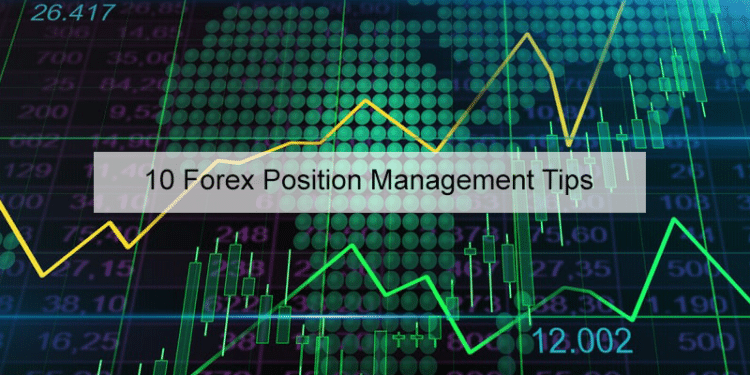Trading in the forex market is like riding a roller coaster. In order to work with the variances in the market, you need to be well-versed with some important trading skills and techniques. The following article covers ten crucial tips to help you stay on top of your trading strategy.
1. Always Use Stop-loss
One of the most important keys for survival in forex trading is incorporating stop-losses. A stop loss instructs the investor or the broker to buy or sell a security when it reaches a pre-set price limit. This is important for consistent trades that give you sustainable results. For instance, if you’ve purchased the currency pair EUR/USD at 1.47739 and you need the position to close when it is moving 100 pips against you, a stop order is set at 1.46739. Whether you are an experienced trader or new at the game, it is crucial to have stop losses for every trade you make as it saves you from massive losses or even profits.
2. Understand and Control Leverage
Many traders don’t understand how leverage can impact their trades. Simply put, leverage is the borrowed capital in order to receive higher potential returns. With leverage, investors can gain accessibility to a larger volume of the market than what they previously could with their limited capital. A leverage ratio of ten-to-one signifies that traders can increase their market exposure (or trade size) by ten times the deposit/margin. Therefore, leverage can be calculated as –
Leverage = Trade size/Equity,
where equity is the product of trade size and margin percentage
Traders might expect huge profits from higher leverage, however it also risks greater losses. For complete beginners, it is advisable to keep leverage of 10% or less. Also, incorporate trailing stops to manage risks effectively.
3. Don’t be a Gambler
Forex trading can turn into gambling if market strategies are not adequately implemented, especially when you don’t know where you’re heading! Traders are prone to developing such a mindset when overwhelmed with the emotion of making money or recouping for their losses with subsequent trades. However, an enterprising and professional trader would not act this way. Discipline, patience and thinking calmly work as a good strategy when you approach trading. To avoid irrational behaviour in the market, as a trader you should focus on learning from the stalwarts in the market, pay attention to analyzing the market better, devise and implement diverse trading strategies before worrying about your losses or gains in the market.
4. Use Forex Risk Management Calculator
A Risk Calculator can prove to be one of your most significant trading tools as It can assist you to keep a check on the losses and deploy methods for course-correction. WIth details like your account currency, account size, and how much risk you want on each trade in either percentage or money. (Risk should ideally be less than 2%), the calculator will provide you with the amount that you should trade with. This takes guessing and estimation out of the equation and is great especially for less experienced traders as the trades suggested will be in accordance with your risk requirements.
5. Set Up your Risk-Reward Ratio
Risk reward ratio is an essential trading metric that determines the potential profit of trade to its potential losses. For instance, if an investor risks 30 pips on a trade and could expect a gain of 60 pips, then the R/R ratio is 1:2. It generally ranges between 1.0 and 0.25. When calculating the R/R ratio for a trade, ensure that stop-loss and profit levels are logically placed and market conditions are taken into account.
6. Control Risk per Trade
An enterprising trader will enter the market knowing his risks. Calculate the risk before stepping into the trade and make certain that risk per trade does not exceed 1-2% of your total trading capital. This way, even if the market doesn’t work in your favour, you’ll be cushioned from any setbacks and will not stand the risk of blowing your account.
7. Do Not over Trade
You are bound to go off-track if you chase the forex market. Implementing a larger volume of trades than what you can handle will wreak havoc with your profitability and efficiency. Working in such a haphazard way will increase your risks. It is always advisable to not turn ‘aggressive’ with your trades. You may balance the position size if you are willing to take more trades so that the risk remains constant.
8. Understand Currency Correlations
As currencies are priced in pairs, when a certain currency pair rises, another currency pair falls. A deeper insight into forex correlations will help you manage the exposure of your forex portfolio. The relation between currency pairs is positive when they move in tandem whereas negative if they evolve in opposite paths. EUR/USD pair is an instance of a positive correlation. To make the most of FX correlations, always make remember to –
- Avoid investing in currency pairs that cancel out each other.
- Keep away from opening positions with the same quote currency.
- Diversify your portfolio as it will help you mitigate risks.
9. Follow the News
To make sustainable profits in the market, it is important to keep a consistent check on policies, changes and turbulences in the major economies of the world. This is because volatility in the economies translates to the forex market as well. Find where the economic data points including interest rates and inflation reports are heading. Staying vigilant will enable you to spot market trends before they become mainstream and help you make profitable trades. Markets across the globe change overnight and if you are updated with accurate news, you will not risk being blind-sided and have an easier time managing your trades.
10. Trading System
Often underrated, devising a trading plan and sticking to it can really improve your game. A trading plan is defined as a framework of guidelines that define your trading behavior. It includes financial goals, money management rules, and tools to mitigate risk pertaining to the trading realm. You must invest time and effort to carefully develop your trading plan according to your goals and trading personality. Planning your trades beforehand will guard you against making erratic decisions and mistakes and therefore ensure better evaluation of profits and losses.
Conclusion
Having an effective risk management system can cushion you from the pitfalls of forex trading. In a nutshell, make sure you keep yourself updated, have a proper plan, invest time to learn how to spot trends and trade consciously instead of running after profits.







